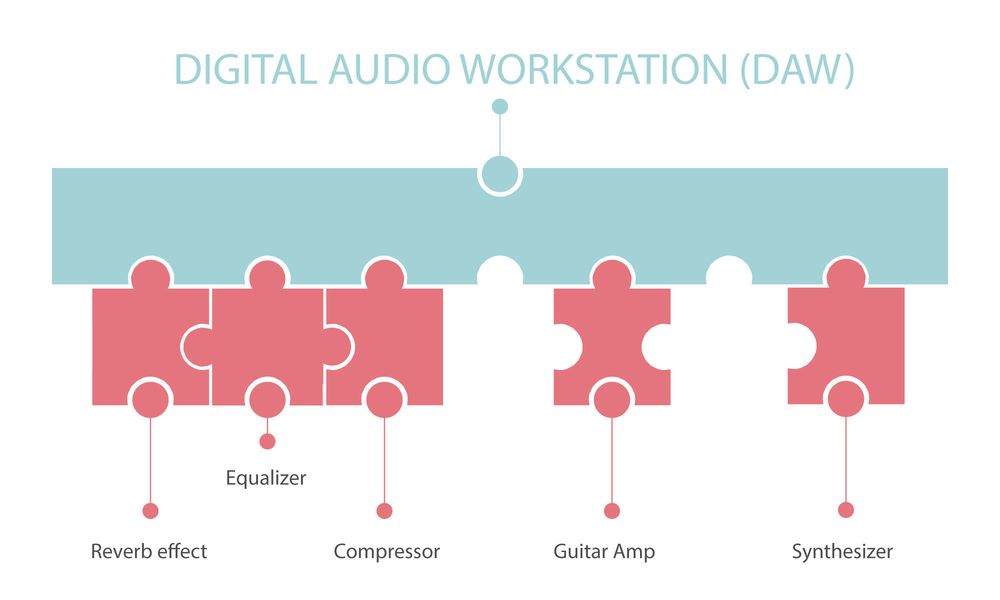3. What Are Plugins?
Plugins are small, standalone computer programs that are integrated into a parent DAW (Digital Audio Workstation) software. The abbreviation DAW stands for "Digital Audio Workstation," which is generally understood as "digital audio systems."
Today, the term DAW is often used interchangeably meaning the "main program" required for making music. This software typically comes with a variety of effects and instruments. Through corresponding plugin interfaces, additional instruments and effects can be loaded, including those from third-party providers.
For more information, you can refer to our DAW Online Guide.
Online Guide to Digital Audio Workstations - DAW
Plugins can be "plugged in" to the DAW as needed – hence their name, derived from the English verb "to plug in." These plugins are essentially extensions that can represent effects or even instruments. Examples of plugins include reverb effects, equalizers, compressors, guitar amps, samplers, synthesizers, or even complex combinations of various effects and instruments.
When you purchase a plugin, you typically need to acquire a usage license, which can usually be used on one or two computers simultaneously. These licenses are either bought as a one-time fee or on a subscription basis.
In either case, with the license, you can open as many plugins as you like within a DAW session. Your computer's performance is the only limit.
There are virtually no limits to creativity in this domain. New, unprecedented plugins are released practically every month, allowing you to manipulate and generate sounds. What was originally conceived as an expansion has evolved into a vast and creatively independent playground for music production.


